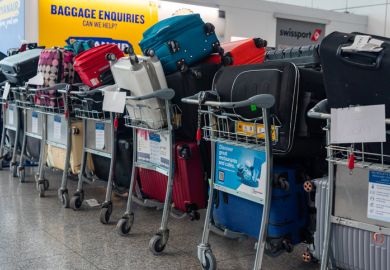The Global Coalition to Protect Education from Attack said the assault by Islamist al-Shabab militants on Garissa University College, close to the Somalian border, represented an attempt to extinguish the transmission of “Western” values.
Initial accounts indicated that at least 15 people had been killed and another 65 were wounded in the assault, which started in the early hours of 2 April.
More than 500 students were unaccounted for, and there were reports that some had been taken hostage.
A spokesman for al-Shabab, which is based in Somalia and is allied to al-Qaeda, told the BBC that it was holding Christians hostage and releasing Muslims.
The university was reportedly guarded by only two police officers, who were shot by the terrorists, despite warnings of a potential attack on a Kenyan university earlier this week.
GCPEA, which brings the United Nations Educational, Scientific and Cultural Organisation together with other agencies and charities, said the “horrific” incident was the latest example of universities being “deliberately targeted for attack as a tactic of war”.
“Institutions of higher education are particularly targeted…because universities and their staff often represent state institutions and state employees,” said Diya Nijhowne, GCPEA’s director. “They are soft, easy targets for anti-government forces.
“By attacking schools and universities, fighters also strike at the heart of the community, and can cause it to lose confidence in the government’s ability to keep it safe,” Ms Nijhowne continued.
“Universities are also the sites of discussion and debate and the transmission of values that groups may oppose or consider ‘Western,’ which is clearly the case with the attack in Garissa.”
GCPEA’s report, Education under Attack 2014, found that higher education institutions had been attacked in 28 different countries around the world between January 2009 and September 2013. Somalia was named as one of six countries where the situation was most serious.
Ms Nijhowne said governments must work to protect universities, to assist victims and to deter future attacks, as well as to hold perpetrators accountable.
“Students and their right to education should not be casualties in armed conflicts,” she said.
A former teacher training college, Garissa University College was given degree-awarding powers in 2011 and is a constituent college of Moi University, which is based in western Kenya.
Christian Turner, the UK’s High Commissioner in Nairobi, condemned the attack as “cowardly”. “Kenyan resolve [and] unity is stronger than terrorists’ hatred,” he said on Twitter.
Register to continue
Why register?
- Registration is free and only takes a moment
- Once registered, you can read 3 articles a month
- Sign up for our newsletter
Subscribe
Or subscribe for unlimited access to:
- Unlimited access to news, views, insights & reviews
- Digital editions
- Digital access to THE’s university and college rankings analysis
Already registered or a current subscriber?




